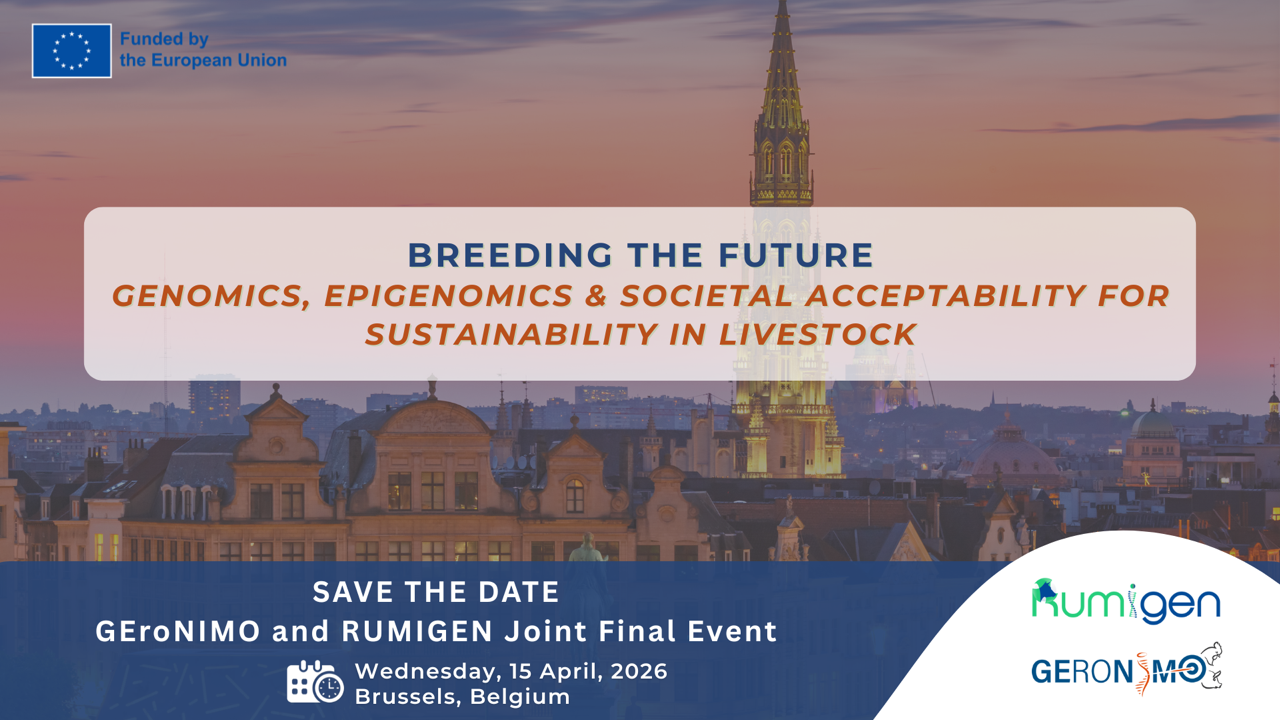Developing new breeding strategies to help Ruminants to adapt to climatic changes
RUMIGEN aims at improving bovine genomic selection using of three levers
Genetic
The genetic level aspires to enlarge the selection criteria, with for example environmental effects, biodiversity preservation, in order to increase animal resilience towards climatic changes.
Genomic
The genomic editing level will explore domains into which genome editing might be useful for Ruminants and will assess its potential impact onde novo mutation rate and its efficiency compare to other classical breeding schemes.
Epigenetic
The epigenetic level is aiming at developing an epigenetic microarray, determining methylation profile of DNA in various tissues and breeding conditions and at integrating these epigenotyping data to refine genomic selection equations.
RUMIGEN, coordinated by INRAE, involves 18 partners in 7 Member states plus Norway and United Kingdom
- Start date: 1st June 2021
- End date: 31st May 2026
- EU contribution: 6.998.851 €
- Project coordinator: Eric Pailhoux
Activity news
The 4th RUMIGEN newsletter is now available!
Enjoy your reading here! For receiving the future issues please sign up here.
Chip stands to revolutionize animal breeding and production – Interview to Rumigen project!
On October 31st, Dr. Clotilde Patry (Eliance) and PhD candidate Adrian Lopez-Catalina (INIA) have been interviewed by the magazine Feedstuffs.

